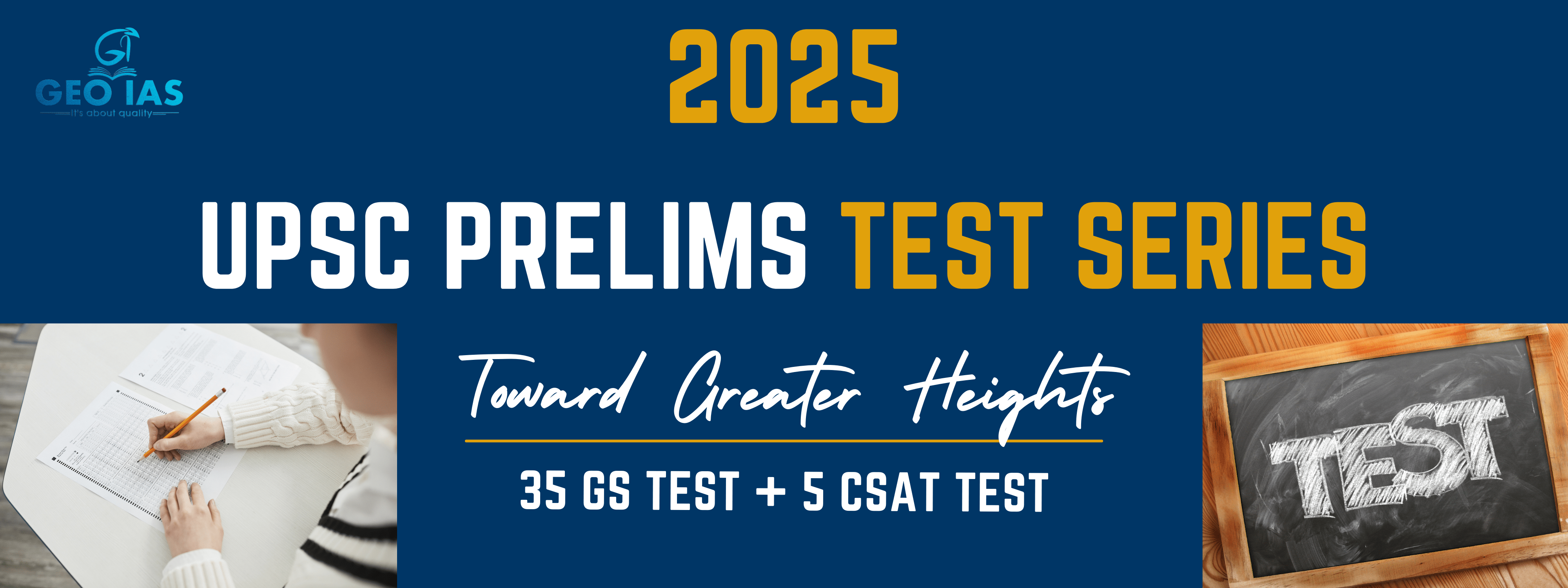UPSC PRELIMS TEST SERIES (35 TESTS INCL. CSAT)
UPSC Prelims Test Series offering 35 General Studies (GS) tests and 5 Civil Services Aptitude Test (CSAT) tests can vary based on the coaching institute and the specific package chosen. Below is a general outline of what you might expect in terms of features and pricing:
Course Features
35 General Studies (GS) Tests
- Full-Length Tests: Simulate actual exam conditions with questions covering the entire GS syllabus.
- Subject-Wise Tests: Focused tests on specific subjects like History, Geography, Polity, Economy, Environment, and Science & Technology.
- Current Affairs Tests: Dedicated tests on recent current affairs to keep you updated with the latest events.
- Mixed Subject Tests: Tests with a mix of questions from various subjects to simulate the unpredictable nature of the exam.
5 CSAT Tests
- Cover all areas of the CSAT syllabus, including comprehension, logical reasoning, analytical ability, decision-making, and basic numeracy.
Detailed Explanations
- Comprehensive explanations for each question to help understand the concept behind the correct answer.
Performance Analysis
- Detailed performance reports to help identify strengths and weaknesses.
- Comparative analysis with other test-takers to gauge your performance.
Flexible Scheduling
- Tests can be taken at any time according to the convenience of the aspirant, allowing for self-paced learning.
Revision Modules
- Focused revision modules and tests to ensure thorough preparation and consolidation of knowledge.
Discussion Forums
- Platforms where aspirants can discuss questions, strategies, and share resources.
Mentorship Programs
- Guidance from experienced faculty and mentors to help with exam strategies and doubt resolution.
Webinars and Workshops
- Additional learning resources and strategies for tackling the exam, often conducted by experts in the field.
Pricing
The cost of the test series can vary significantly depending on the coaching institute, the quality of materials, and additional support features. Here’s a general range of what you might expect:
Basic Package: ₹8,000
- Typically includes just the test series with explanations and performance analysis.
Standard Package: ₹12,000
- Includes the test series along with additional resources like webinars, workshops, and discussion forums.
Premium Package: ₹15000
- Includes all features of the standard package plus personalized mentorship, in-depth performance analysis, one-on-one doubt resolution sessions, and possibly access to live classes or additional study materials.
Enrollment Process
Registration:
- Enroll through our institute’s website or physical office.
- Payment of course fees either online or in person.
Access to Materials:
- After registration, candidates receive access to test series materials, schedules, and online portals if applicable.
Additional Support
- 24/7 Access: Online portals with round-the-clock access to test materials and performance reports.
- Mobile App: Some institutes offer a mobile app for easy access to tests and performance tracking on the go.
- Offline Access: Downloadable tests and materials for offline practice.
UPSC PRELIMS TEST SERIES (35 TESTS INCL. CSAT)
For additional information related to this course, call +9477560001.
Enroll Now Book Personalize Guidance SessionsKey Points of the Course
Participating in a UPSC Prelims Test Series is crucial for several reasons. Here are the key points highlighting its importance:
Importance of Prelims Test Series
Real Exam Simulation
- Familiarity with Exam Pattern: Mock tests replicate the format, difficulty level, and time constraints of the actual UPSC Prelims exam, helping candidates get accustomed to the exam pattern.
- Reduced Exam Anxiety: Regular practice under exam-like conditions helps reduce anxiety and build confidence.
Effective Revision
- Syllabus Coverage: Test series cover the entire syllabus comprehensively, ensuring that no important topic is missed.
- Structured Revision: Helps in systematic and structured revision of subjects, reinforcing key concepts and facts.
Performance Analysis
- Identify Strengths and Weaknesses: Detailed performance analysis highlights strong and weak areas, enabling focused preparation.
- Improvement Tracking: Continuous assessment through tests helps track improvement over time.
Time Management
- Pacing: Practicing with timed tests teaches effective time management, crucial for answering all questions within the limited exam duration.
- Prioritization: Helps in learning how to prioritize questions, focusing first on those that can be answered quickly and accurately.
Question Diversity
- Exposure to Varied Questions: Provides exposure to a wide range of questions, including those that test conceptual understanding, factual knowledge, and current affairs.
- Enhanced Problem-Solving Skills: Encourages the development of problem-solving strategies for different types of questions.
Current Affairs Integration
- Regular Updates: Current affairs tests ensure that candidates stay updated with the latest events and issues of national and international importance.
- Application of Knowledge: Helps in applying current affairs knowledge to different contexts and questions.
Improved Accuracy
- Error Analysis: Detailed explanations and analysis of each question help understand mistakes and avoid them in the future.
- Better Answer Selection: Regular practice helps in making more accurate choices, reducing negative marking.
Competitive Edge
- Benchmarking: Provides a competitive edge by allowing candidates to benchmark their performance against peers.
- Motivation and Discipline: Encourages regular study habits and discipline, maintaining consistent preparation efforts.
Strategic Preparation
- Test Strategy Development: Helps in developing and refining test-taking strategies, including guessing techniques and elimination methods.
- Adaptive Learning: Enables adaptive learning by focusing more on weaker areas identified through test performance.
Psychological Preparation
- Stress Management: Helps in managing exam stress and building mental stamina for the actual exam day.
- Confidence Building: Regular success in mock tests builds confidence, essential for performing well under pressure.
Conclusion
A UPSC Prelims Test Series is a vital component of effective preparation, providing numerous benefits that contribute to a candidate’s overall readiness for the exam. It offers a structured approach to revision, helps in identifying and improving weak areas, and builds the necessary skills and confidence to tackle the actual exam successfully.






